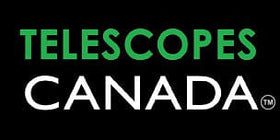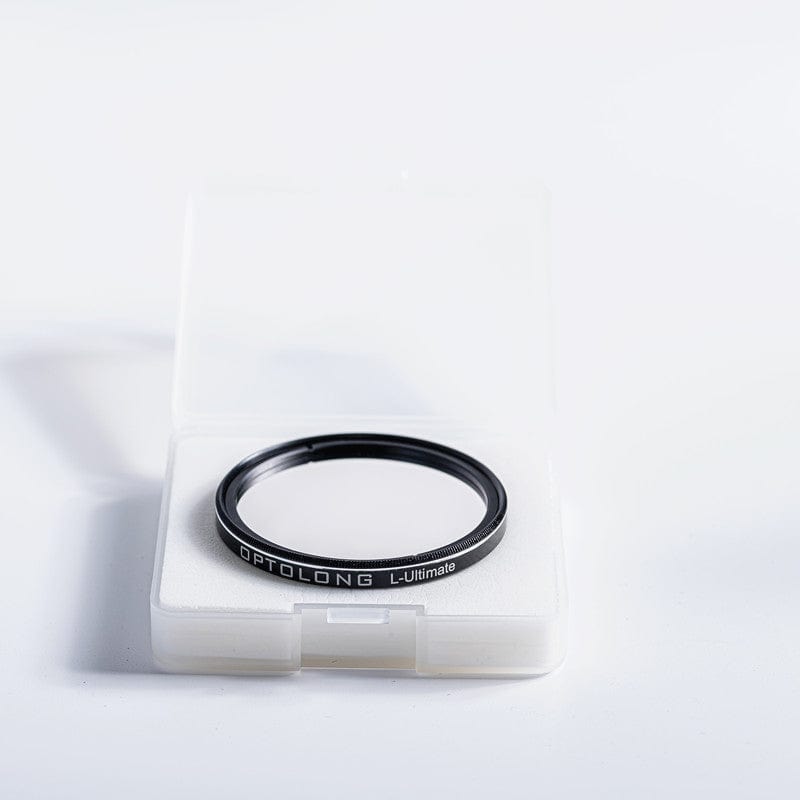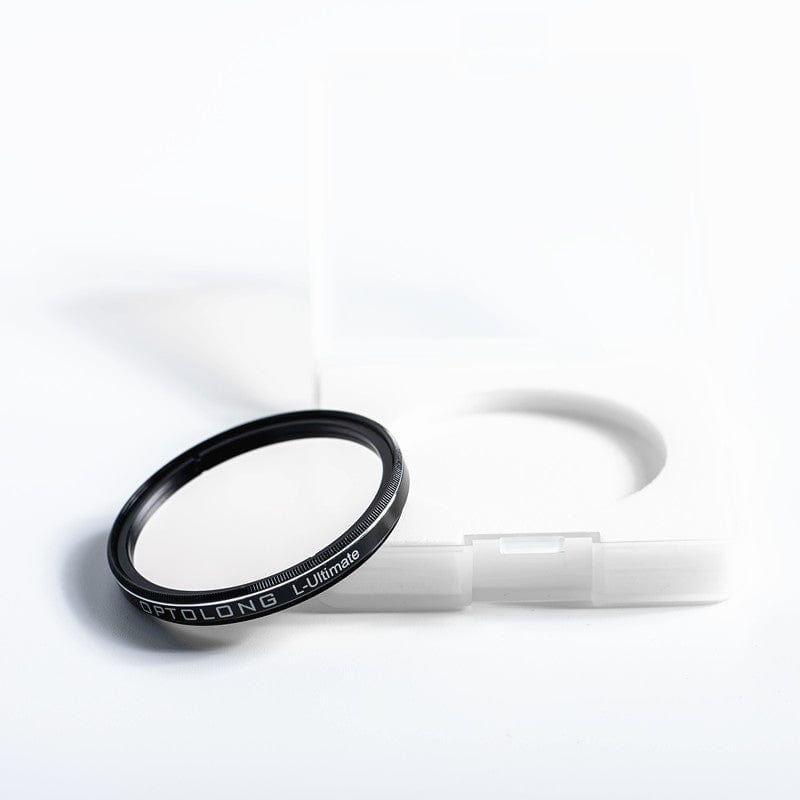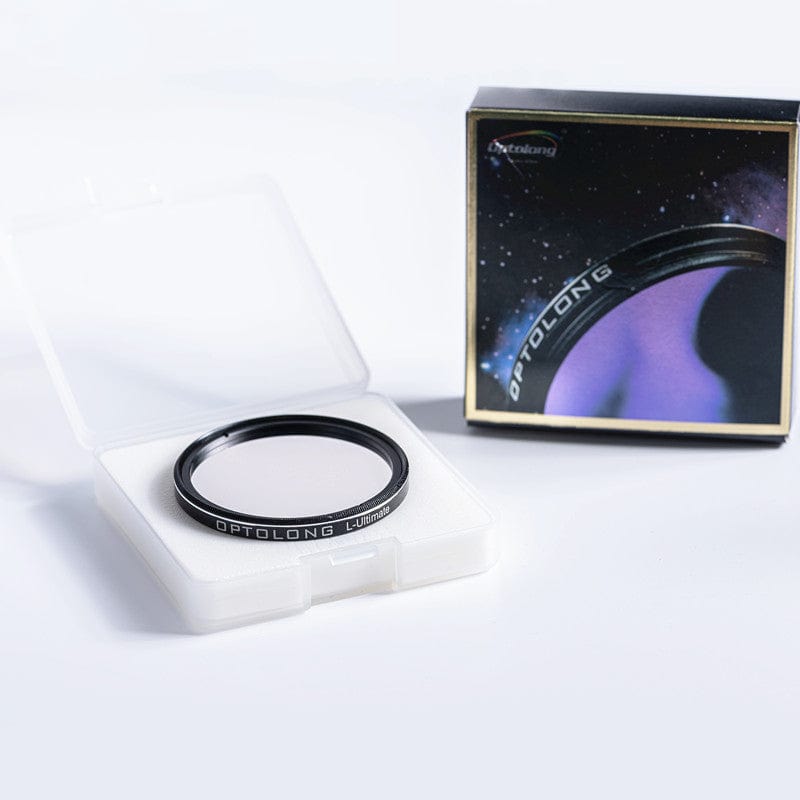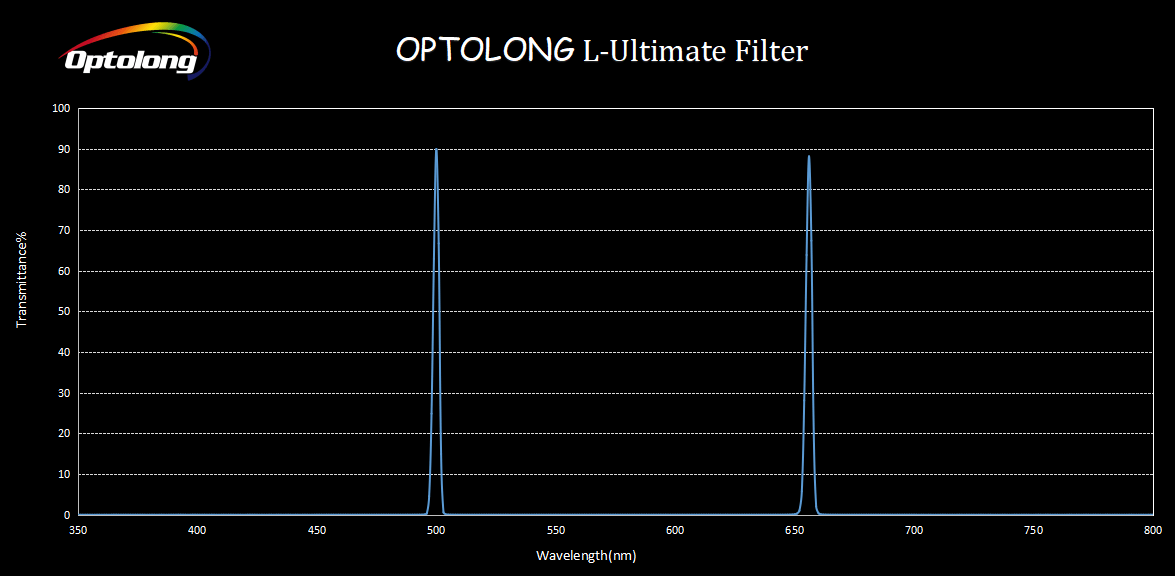Description
The L -Ultimate is a 3nm dual band designed to drastically reduce the effect of light pollution, the 3nm isolates the nebulae's emissions into H-Alpha (red) and OIII (green-blue). It blocks light pollution, maximizes the signal from nebulae, and darkens the sky background. It also blocks artificial light from mercury vapor lamps, high and low pressure sodium vapor lights, and unwanted natural light caused by the emission of neutral oxygen in our atmosphere. Maximizes the transmission of the main emission lines of the nebula in OIII (496nm and 500nm) and H-alpha (656nm). Used with DSLR, color/MONO CMOS and CCD, however, this filter is not suitable for fast ratio systems.
The advantage of L-Ultimate is that it only passes through the emission lines OIII(500.7nm) and Ha(656.3nm), in which case all other light pollution emission lines are eliminated so that only the emission and reflection signals of the nebula are captured during imaging. Therefore, the sky background of the image is darker, and the contrast between the nebulae and the signal-to-noise ratio are improved to the greatest extent. In heavy light pollution areas, the product can also selectively filter light pollution and clutter signals through the emission lines of nebulae, and finally avoid the impact of light pollution on astrophotography.
It is different from the series of dual-narrowband L-eNhance and L-eXtreme in that L-Ultimate is a dual-3nm bandwidth filter that only passes through Ha and OIII emission lines. You will get a darker sky background, more contrast of the image and the suppression on stars. L-Ultimate has also been optimized in terms of halo performance, so that there is no obvious halo when shooting on a bright star object.
Specifications
| Substrate | optical glass |
| FWHM | OIII 3nm Ha 3nm |
| Blocking range | 300-1000nm |
| Blocking | >OD4 |
| Surface quality | 60/40 |
| Transmitted Wavefront RMS: | λ/4 |
| Parallelism | 30seconds |
